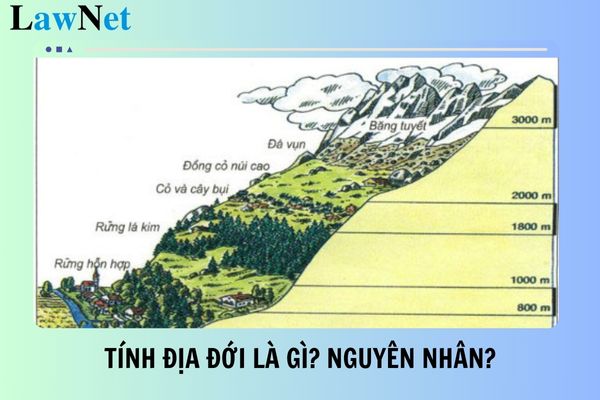What is zonal characteristic? What are the main causes of the zonal characteristic? What are the academic topics in the 10th-grade Geography curriculum in Vietnam?
What is zonal characteristic? What are the main causes of the zonal characteristic?
Zonal characteristic is the law of distribution of natural components and geographical landscapes on Earth according to latitude. It is clearly expressed through the systematic change of climate, soil, vegetation, animals, and other natural components from the equator to the poles.
The main cause of zonal characteristic is that the Earth is spherical, and solar radiation decreases from the Equator to the poles. Specifically, the detailed main causes of zonal characteristic are as follows:
- Earth is spherical:
+ Because the Earth is spherical, sunlight does not shine perpendicularly evenly over the entire surface.
+ In the equatorial region, sunlight shines nearly perpendicular, resulting in solar energy being concentrated in a small area, creating high temperatures.
+ In polar regions, sunlight shines obliquely, causing solar energy to disperse over a larger area, leading to lower temperatures.
- Solar radiation decreases from the equator to the poles: The angle of sunlight changes according to latitude, causing solar radiation to decrease from the equatorial region (large illumination angle) to the polar regions (small illumination angle).
This creates temperature differences, which is the decisive factor in differentiating climate zones and other natural components (soil, vegetation, animals).
Note: The content is for reference only!

What is zonal characteristic? What are the main causes of the zonal characteristic? What are the academic topics in the 10th-grade Geography curriculum in Vietnam? (Image sources from the Internet)
What are the academic topics in the 10th-grade Geography curriculum in Vietnam?
Under the General Education Program issued with Circular 32/2018/TT-BGDDT, the academic topics in the 10th-grade Geography curriculum in Vietnam are defined:
| Academic topic name | Grade 10 | Grade 11 | Grade 12 |
| academic topic 10.1: Climate Change | x | ||
| academic topic 10.2: Urbanization | x | ||
| academic topic 10.3: Geography Report Writing Method | x | ||
| academic topic 11.1: Some Issues about Southeast Asia (Mekong River Commission; Peaceful cooperation in the exploitation of the East Sea) |
x | ||
| academic topic 11.2: Some Issues about World Tourism | x | ||
| academic topic 11.3: The Fourth Industrial Revolution (4.0) | x | ||
| academic topic 12.1: Natural Disasters and Prevention Measures | x | ||
| academic topic 12.2: Regional Development | x | ||
| academic topic 12.3: Craft Village Development | x |
There are 03 academic topics in the 10th-grade Geography curriculum in Vietnam, including:
- academic topic 10.1: Climate Change
- academic topic 10.2: Urbanization
- academic topic 10.3: Geography Report Writing Method
What are the orientations to the methods for forming and developing geographical competencies in Vietnam?
According to the General Education Program issued with Circular 32/2018/TT-BGDDT, the orientations to the methods for forming and developing geographical competencies in Vietnam are as follows:
- To develop the component of scientific geographical cognition competency, teachers provide opportunities for students to leverage their existing knowledge and experiences to engage in new knowledge formation. Attention is paid to organizing activities that approach geographical objects and phenomena in life according to spatial-temporal relationships, answering basic questions: what, where, how...; training students in the skills to analyze interrelationships (mutual and causal) between natural geographical phenomena and processes, between economic-social geographical phenomena and processes, as well as between the natural system and the economic-social system.
- To develop the component of geographical inquiry competency, teachers facilitate conditions for students to use geographical tools such as atlases, maps, diagrams, charts, templates, models, blocks, data tables, pictures, etc., to explore geographical knowledge; enhance the exploitation of the Internet in learning, organize for students to engage in field studies, in the natural environment and local socio-economic contexts.
- To develop the component of applying knowledge and skills learned about geography, students need to be given opportunities to update information and relate to reality, approach practical situations, undertake learning topics exploring from reality; apply geographical knowledge and skills to solve some practical issues appropriately.
- Teachers need to focus on training students in skills to identify problems, plan research, problem-solving, evaluate problem-solving results, propose remedial solutions or improvements, and increase the use of exercises that require applying practical knowledge and critical, creative thinking.

